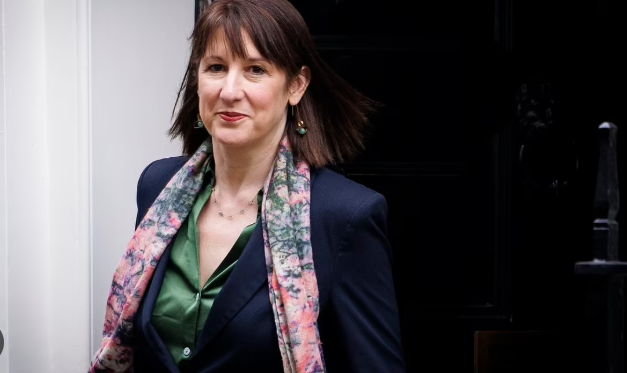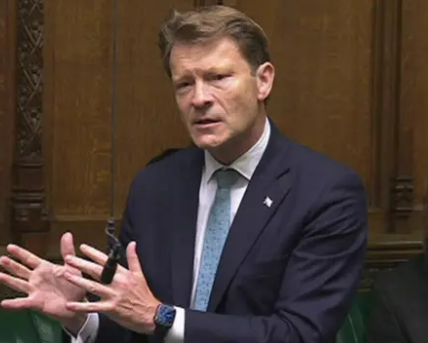Embattled Rachel Reeves jets off to World Economic Forum in Davos – despite fresh alarm over faltering UK economy and warnings from investors of ‘debt death spiral’_Nhy
Embattled Chancellor Rachel Reeves jetted off to Davos last night as Britain recorded its biggest jobs slump since Covid.
Ms Reeves headed for the Swiss mountain resort for the annual gathering of the World Economic Forum as it was claimed that the UK was also heading for a ‘debt death spiral’.
And the boss of one of Britain’s leading banks said the Chancellor had so far failed to get to grips with the economy.
It was the second time that Ms Reeves has left the country in gathering economic gloom, following a visit to China earlier this month as a bond market sell-off took hold.
Official figures yesterday suggested the policies are starting to hurt UK jobs. The Office for National Statistics said the number of payrolled employees fell by 47,000 last month, the sharpest drop since November 2020 and coming on top of a 32,000 decline a month earlier.
It also revealed a rise in the unemployment rate to 4.4 per cent in the three months to November, a six-month high.
Yet while the aim of the Davos trip is to bang the drum for Britain, the Chancellor was yesterday accused of doing too little to sell the country’s strengths to the world.

It is the second time that Rachel Reeves (pictured outside Downing Street) has left the country in gathering economic gloom

The annual meeting of the WEF is happening in Davos, Switzerland, this week
While she will attend a series of meetings with top bosses and investors as well as a round of media engagements she will not participate in any events on the forum’s main agenda.
City grandee Sir Martin Sorrell, chief executive of marketing firm S4 Capital told the Mail: ‘I think it’s a shame, I think she should showcase British strengths at a public session. Doing things behind closed doors I think is not helpful – on its own.’
Britain’s economy stagnated in the second half of last year and business confidence for coming months has crumbled in the wake of Ms Reeves’s £25 billion raid on employee national insurance (NI) as well as Labour’s introduction of a raft of new workers’ rights.
The Institute of Directors (IoD), a leading business group, said the recent figures ‘should set alarm bells ringing’.
IoD chief economist Anna Leach said: ‘The significant increases in employer NI, the forthcoming increase in the minimum wage and concerns over the cost of employment rights continue to sap demand for workers.’
And Tory business spokesman Andrew Griffith said the figures showed a ‘worrying trend’.
‘Trash talking business confidence, more red tape on job creators and the Budget’s ‘jobs tax’ mean that as sure as the sun rises in the east, employment is now falling.’
Meanwhile, one of the world’s most prominent investors, Ray Dalio, sounded the alarm over recent turbulence in the market for UK bonds – known as gilts – which has sharply pushed up the cost of government borrowing.

Sir Martin Sorrell, chief executive of marketing firm S4 Capital told the Mail: ‘I think it’s a shame, I think she should showcase British strengths at a public session.’
Mr Dalio, founder of hedge fund Bridgewater, told the Financial Times that it ‘looks like a debt death spiral in the making’ because it would require either more borrowing, less spending or tax hikes.
Sir Martin Sorrell said Mr Dalio’s view was common among those gathered in Davos.
He said sentiment among business leaders towards Labour had ‘deteriorated quite seriously’.
‘The irony about what’s happened is that before the election they were doing the smoked salmon and scrambled egg breakfast to get business confidence so they got people onside,’ he said.
‘Since they’ve been in power, they’ve found it more difficult.’People were a bit bemused by the Budget.
‘We’ve got half the plan – we’ve had to take the unpleasant medicine, increase of taxes – now where’s the growth plan?’
Sir Martin said Britain was now in the same position as struggling Germany and France – in stark contrast to the surge in so-called ‘animal spirits’, or appetite for dealmaking, that is now taking hold as Donald Trump takes over as US president.
Meanwhile, UK banking bosses at Davos yesterday pointedly failed to offer ringing endorsements of the government even as they sought to sound a positive note.
Bill Winters, chief executive at Standard Chartered, said: ‘They’ve had a little bit of trouble finding their grip in the early days – I have every confidence that they will.’


Among the business leaders Reeves is due to meet are JP Morgan boss Jamie Dimon (left) and Goldman Sachs chief David Solomon (right) – two of the world’s most powerful bankers
Charlie Nunn, chief executive of Lloyds Banking Group, told TV channel CNBC: ‘Sentiment’s definitely tailed off in the last few months and you can see it across some of the largest organisations all the way down through SMEs [small and medium enterprises].’
Mr Nunn said the government had ‘laid out a clear plan’ and must now ‘get on and accelerate that plan’ focusing on industrial strategy, planning and regulations.
He added: ‘For some organisations in some sectors, the national insurance changes coming in April are difficult. They put on significant additional costs.’
CS Venkatakrishnan, the Barclays chief executive, said of the government that ‘you just have to give it time to get the policies in place’.
And in a cricketing analogy, he told the Mail: ‘I’m a Test match guy not a T20 guy.’
The remark seemed to imply that he was willing to wait for the situation to improve – but also that patience could eventually run out.
Rishi Khosla, chief executive of OakNorth bank, told the Mail: ‘The way that Labour ran their election campaign was super pro-business, really positive.
‘So as business and entrepreneurs you were thinking, this is going to be good. And the first couple of weeks were good but then then the tone changed pretty dramatically.’

While the aim of the Davos trip is to bang the drum for Britain, the Chancellor has been accused of doing too little to sell the country’s strengths to the world
He pointed to the doom and gloom ahead of the Budget as Labour talked down the state of the economy they inherited, followed by the measures announced in the Budget itself.
‘A lot of that just zapped confidence out again,’ said Mr Khosla, who is a former Tory donor.’ There were very few pro-growth measures.
‘They hit business without any let-up to that or without any clear direction of where that let-up’s going to come.’
Meanwhile, changes to inheritance tax, as well as rules for non-doms – individuals not domiciled in the UK for tax purposes – were leading to an exodus of wealth creators, he said – many of them fleeing to the likes of Milan and Dubai.
‘You’re just losing a lot of people from the UK who are those growth drivers, who are the people who effectively have the entrepreneurial ambition,’ Mr Khosla said.



